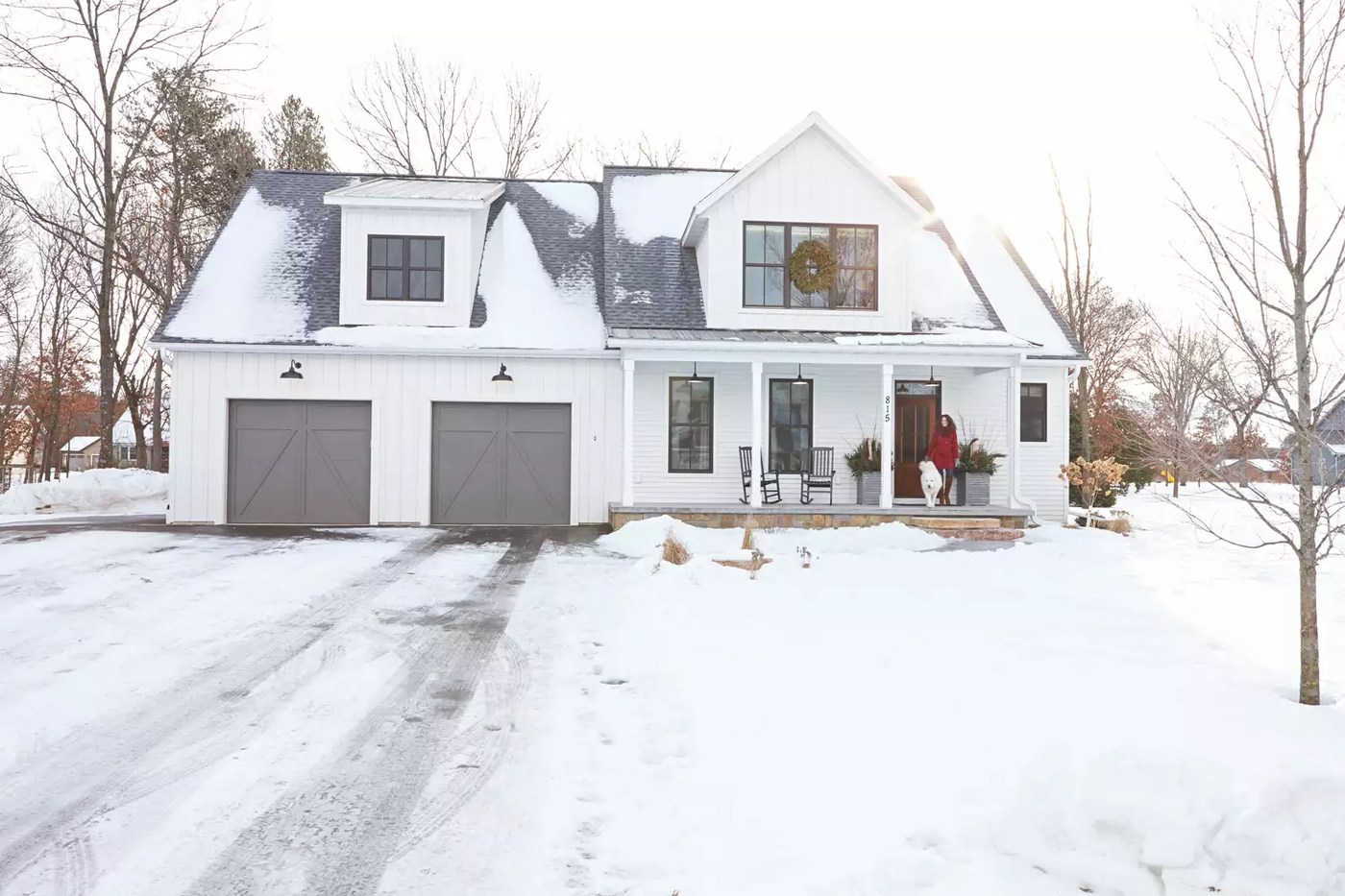
What You Need to Know About Buying or Selling a Home in Winter
November 4, 2022
Between market slowdowns and the holidays, buying or selling a home during the colder months has its own particular challenges. Here’s what you need to know.

Photo Credit: Better Homes & Gardens
Selling your home is a stressful endeavor any time of year: So much has to happen to get a property listed and in front of the right buyer. But selling in the colder winter months has its own special challenges.
“Usually, late November is when home sales begin to slow down,” says L. Michelle Terrell, a strategic real estate advisor at Real Estate Bees. “This is largely attributed to the upcoming holiday months, where people have redirected their focus. In addition, once the weather becomes colder, people generally stay indoors. People who shop for homes during winter months do so out of necessity or to look for a bargain.”
From market slow-downs to scheduling around the holidays, choosing to sell from as early as October to as late as February brings a host of challenges. But don’t stress—these experts have tips for selling no matter the time of year.
The Winter Housing Market
The housing market slows during the winter months and all but screeches to a halt in that lull between Christmas and New Year’s Eve. There are a few reasons for this, real estate agents say.
“Homes sell slower in the winter months because there are fewer buyers out,” says Milford Adams, immediate past chair of the Denver Metro Association of Realtors (DMAR) and CEO of Lyons Realty Group. “It slows down in September because kids are back in school, and parents don't want to disrupt school schedules. This is also when the season changes. It usually picks up in March.”
“Homeowners know that they’ll generate the most offers in the summer months,” says Alex Capozzolo, co-founder of Brotherly Love Real Estate. “Ideally, houses get listed in the spring to eventually sell during the summer months. Homeowners trying to catch the tail end of the summer buying craze list their properties in August and sell in early October. Home sales decrease dramatically from there.”
For those reasons, your home may linger on the market longer than normal in late fall and winter. To get things moving, you can reduce the price—but keep in mind that savvy buyers will also be looking for a deal this time of year and could be willing to negotiate.
Tips for Selling Your Home in Winter
When you list your home, it’s usually impossible to know how long it will be on the market. If you’re looking to sell in winter, you might feel the urge to decorate for the holidays even as you try to make your home look neutral. Experts have mixed views on this.
“Buying a home is more than about the sticks and bricks, it is also about the ‘feeling’ and visuals,” Terrell says. “Holiday decor usually will put someone in a good space.”
Adams agrees. Decorations are fun and exciting for kids and buyers with families will like the festivity, he says.
“I had a client that said they would give full price to the sellers if they would leave the outside Christmas lights and the Christmas tree with the home,” Adams says.
If you do decorate, wait to hang up the lights until after your listing photos have been taken.
“If the market takes a bad turn and you have to wait until after the holidays to get a good offer, you won’t want Christmas lights in your living room or snowmen photobombing your photos,” Capozzolo says.
Decor aside, if you live in a snowy area, you’ll want to make sure your home is safe for potential buyers during this time.
“When touring a home in cold weather, the seller should make sure the outside walkways and driveway is clear of snow, completely shoveled, front, back and the side of the house and the back deck,” Adams says. “You also want to put down sand and salt to make sure the area is safe, because your potential buyers will still want to see the back of the house.”
Your home might remain on the market longer than normal in winter, but you won’t necessarily have to reduce the price to get things moving.
“A lot of corporate relocation happens during the fourth quarter,” says Keri Duffy, DMAR board member and broker associate at Kentwood Real Estate. “Anyone out looking or listing is likely highly motivated.”
Tips for Buying a Home in Winter
Buying a home during the winter does have some advantages. Namely, you could get a better deal while the shopping is slow.
“Market values don’t necessarily drop too much during winter months, depending on the current market conditions and area,” Capozzolo says. “However, you’ll likely have an easier time getting your offer accepted, because there will be less competition among buyers.”
Additionally, you’re able to check on the condition of the property during colder months.
“This is a good time to inspect window frames and door frames to measure how well they are sealed. If you can feel drafts coming through either, this could be something you can negotiate in the final sale,” Capozzolo says.
If you notice areas of the property covered in snow drifts or otherwise obscured by seasonal conditions, you can ask the agent for photos of the property in warmer months, Capozzolo says. Adams adds this is a good way to get a feel for the lawn, as well, and most sellers will want to show that off.
Source: What You Need to Know About Buying or Selling a Home in Winter Better Homes & Gardens (October 27, 2022) Kristine Gill